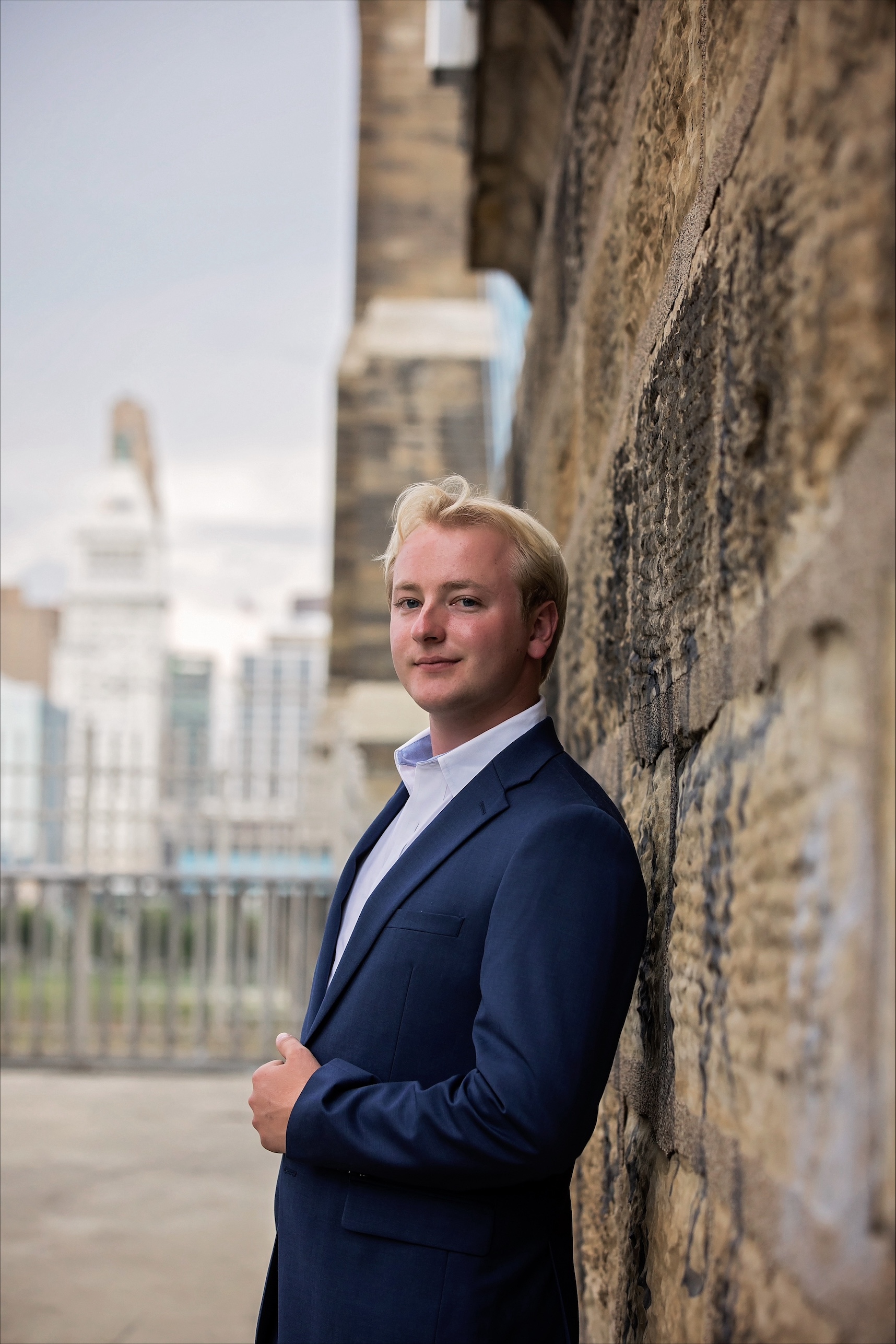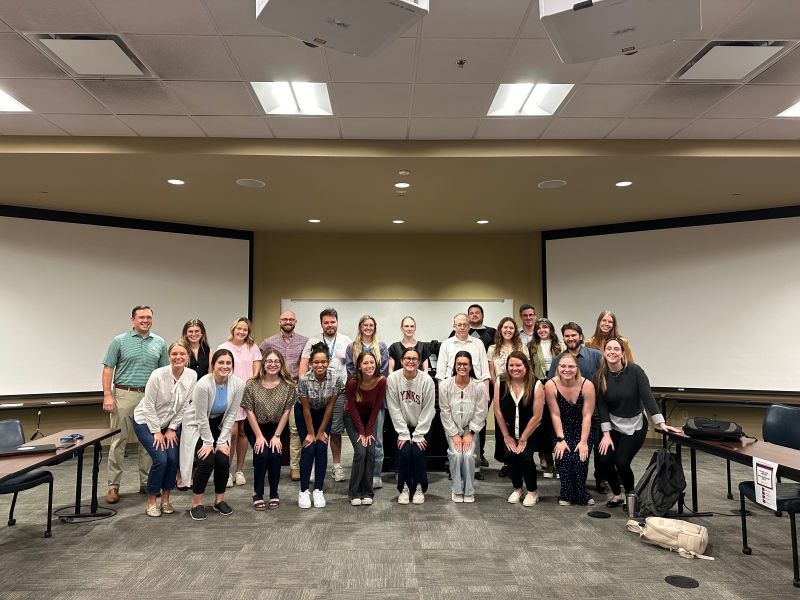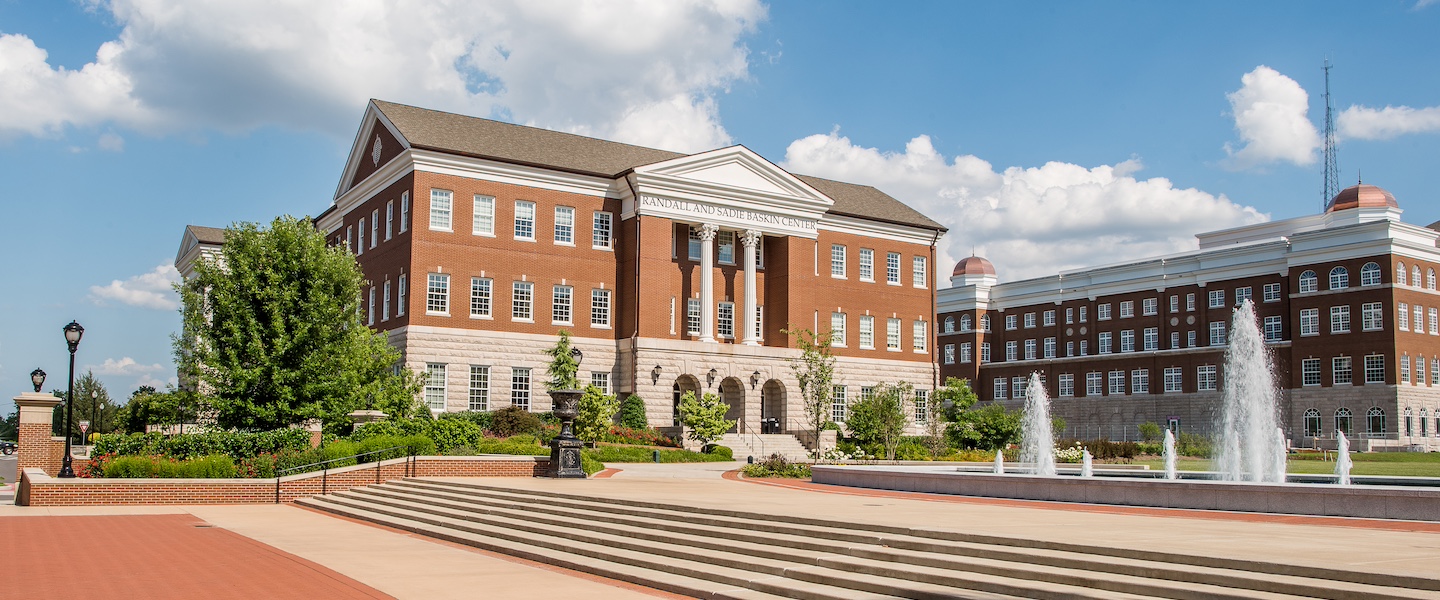Peer mentorship allows students to bring their best selves into the classroom
Law school is known for being a time of incredible growth and incredible stress. Belmont’s College of Law mitigates the stressful part of the experience through its peer mentorship program, which creates spaces for students to talk through their stressors and build a sense of community.
In the program, students in their second and third year of law school (2Ls and 3Ls, respectively) are paired with first year (1Ls) students to offer guidance and support.
 Camille Murashige and Liam Sweeney have been on both sides of Belmont Law’s peer mentorship program as mentees and mentors. Both are 2Ls and serve as co-mentors to five 1L students.
Camille Murashige and Liam Sweeney have been on both sides of Belmont Law’s peer mentorship program as mentees and mentors. Both are 2Ls and serve as co-mentors to five 1L students.
A major benefit of the mentorship program is that it acts as an unstructured option in the highly regulated world of law school. After mentors and mentees are paired, they are left to their own devices, allowing for relationships to grow naturally. The mentorship program was a distinguishing component of Belmont Law that appealed to Murashige in her search for a law school. "Peer mentorship was not something that was advertised to me from any of the other schools that I was looking at, and I looked at a lot,” she recalled. “I also think it speaks to the general social attitude that our law school has compared to a lot of other law schools.”
Paying It Forward
Murashige and Sweeney had mentors as 1Ls and found that the experience led to a greater sense of community and belonging. Now, they want to continue helping 1Ls by being mentors themselves. “I had people who made my experience so wonderful and easy, and that's what I want to do for the incoming class,” said Sweeney.
 Belmont Law is testing the co-mentor method this year. Mentors are put in pairs and given five or six mentees to create more opportunities for connection and friendship.
Belmont Law is testing the co-mentor method this year. Mentors are put in pairs and given five or six mentees to create more opportunities for connection and friendship.
“It's a lot easier to find something in common when there's a larger pool of people,” Murashige said. “It takes some of the pressure off. And now I see them hanging out as a group at school, sitting at the same table studying together. That's an encouragement too, to see that being an automatic safe group of people."
Peer mentoring provides new students with living proof that the challenges they face are surmountable. It connects them with peers who have recently navigated the same journey and emerged successful, offering both inspiration and practical guidance.
“It's about comfort and safety as much as anything else,” Sweeney said. “Moving to a new place and starting law school is a huge undertaking. It's nice to have someone who might not know everything but has been where you are and knows some of the answers or can point you in the right direction.”
Belmont Law’s intentional investment in community challenges the highly competitive and isolating reputation of many law schools. “The stereotype is that law students are cutthroat and that it's hard to make true friends,” Murashige explained. “That has not been my experience at all. The attitude from day one is that we're here to help each other. We all have the same goal.”
Murashige and Sweeney emphasized how they felt this was their way to give back the program that helped them in their first year of school. “I want to make sure my mentees have the same support I did when I was coming through, and that everyone can find their own approach to law school and be comfortable with it,” Sweeney said.
Beyond Mentorship
The benefits to being mentors aren’t just one-way. "It's super gratifying to be able to offer that support to other friends,” Murashige added.
Collaboration with other students teaches young professionals how to positively interact with each other and help each other out, a necessity for post-grad.
 Both Murashige and Sweeney were drawn to Belmont Law for its connection to Nashville and the community of law that exists in town. Much like Belmont, the Nashville law community is deeply relational and offers young professionals opportunities in several niches. Murashige currently interns at the Office of General Counsel for the Tennessee Department of Conservation, while Sweeney interns in Murfreesboro in the corporate and criminal realms.
Both Murashige and Sweeney were drawn to Belmont Law for its connection to Nashville and the community of law that exists in town. Much like Belmont, the Nashville law community is deeply relational and offers young professionals opportunities in several niches. Murashige currently interns at the Office of General Counsel for the Tennessee Department of Conservation, while Sweeney interns in Murfreesboro in the corporate and criminal realms.
In addition to her mentor role, Murashige is active in the American Constitution Society, Christian Legal Society, Women’s Legal Society and intramural volleyball in the FitRec. Sweeney is involved in the Belmont Law Journal, is a graduate research assistant and serves as the treasurer of the Christian Legal Society.
"Being an attorney is a helping profession, and in order to be successful in a helping profession, there has to be an element of selflessness,” Murashige said. “Not only is that a professional thing; it's soul food. Being able to sit with someone and be real with them is life giving, and sometimes it's what you need. Being able to get energy back in the tank is a huge reason why I think fostering friendship and community in law school is so important.”
Interested in Belmont Law?

